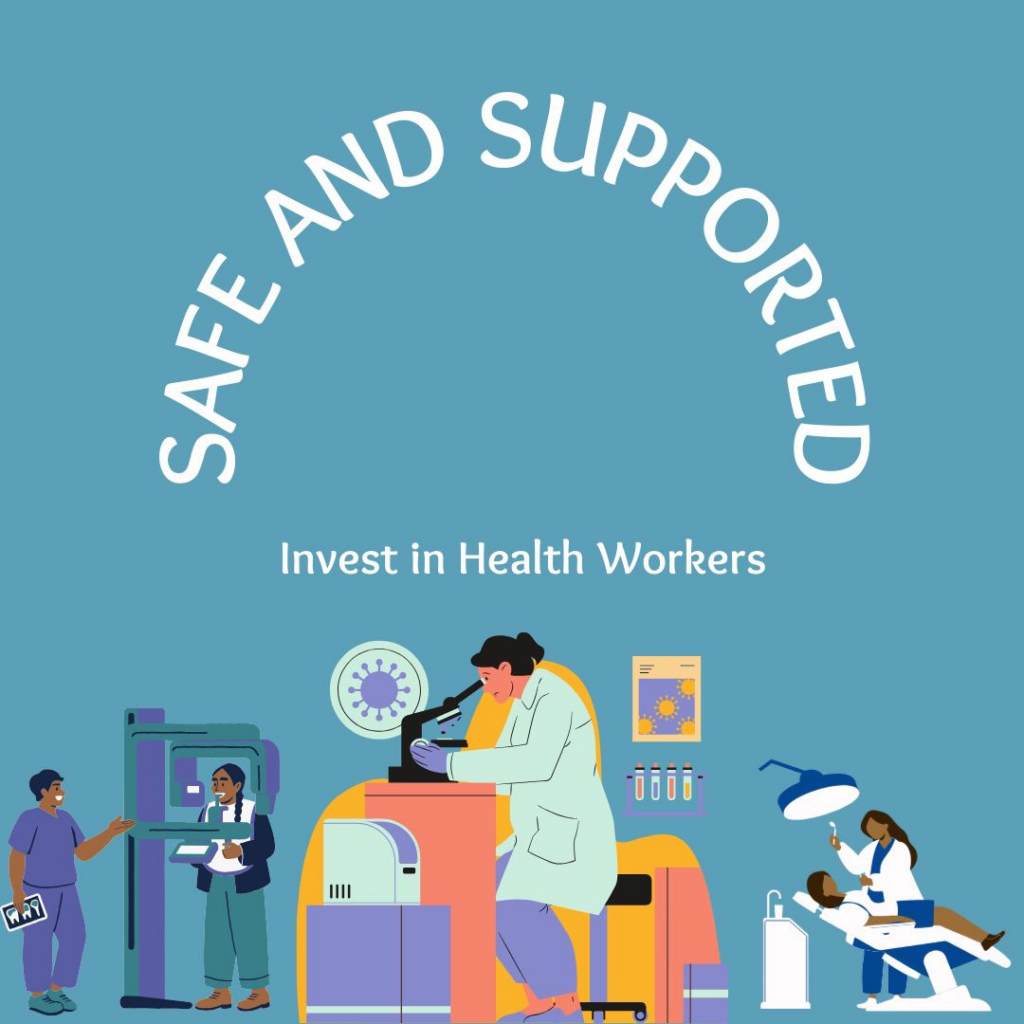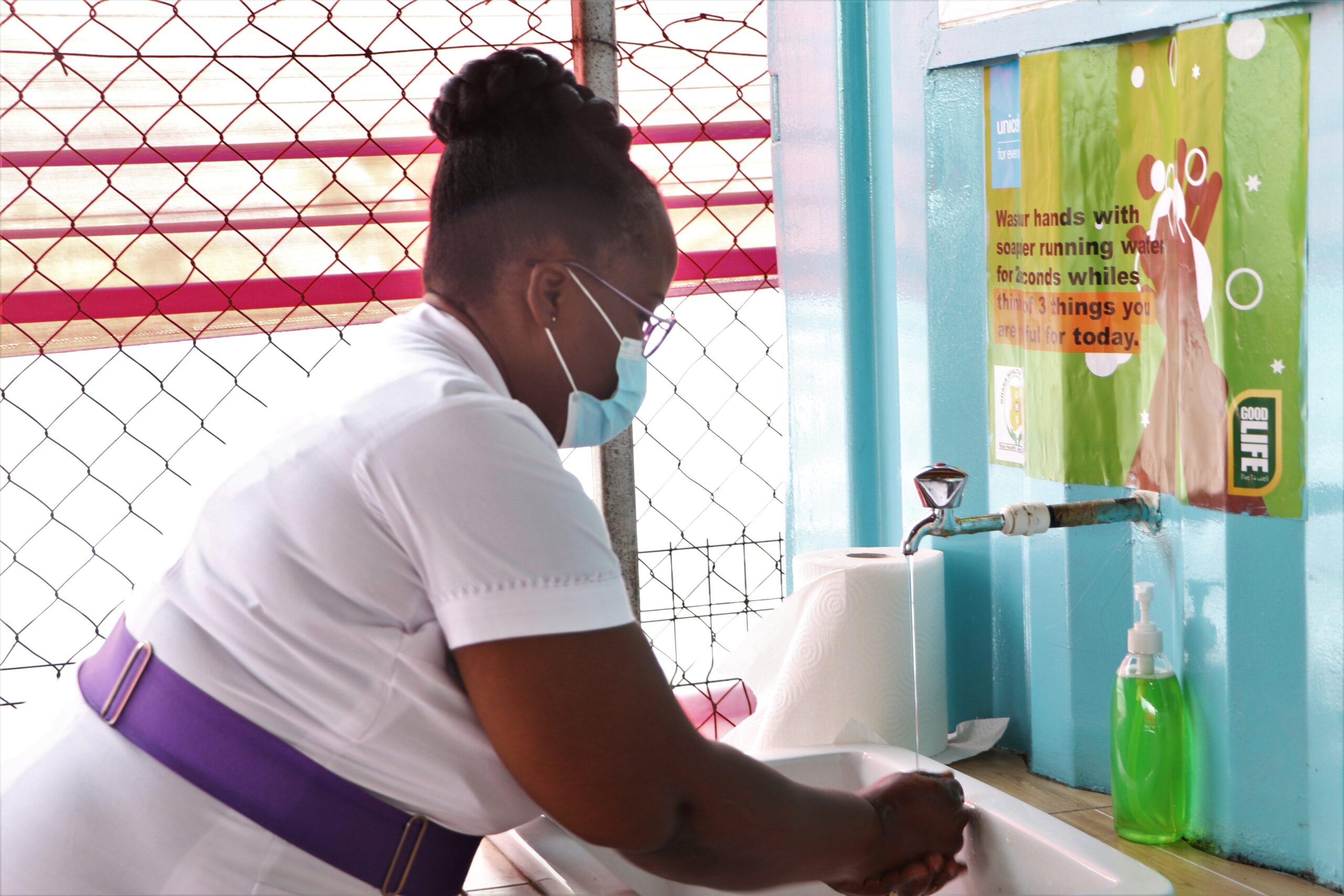In the heartbeat of healthcare lies the pulse of our health workers—the unsung heroes who dedicate themselves to our well-being every day. Their tireless efforts and unwavering commitment are the lifeblood of our healthcare system. Yet, beneath their scrubs, and stethoscopes lies a narrative often overlooked—the challenges they face, the sacrifices they make, and the support they so desperately need. In this narrative, we find the essence of our healthcare journey—a journey that hinges upon the safety, well-being, and support of those who stand at its forefront.
When considering healthcare workers, our minds often gravitate towards nurses and doctors, overlooking the essential roles played by lab technicians, therapists, radiographers, dieticians, social workers, and administrative staff who keep the healthcare system functioning smoothly. Their primary duty is to deliver essential services while ensuring their safety remains paramount.
Even so, it’s important to remember they’re human and need a safe, supportive environment to do their best. Yet, the problems they’ve complained about continue to exist.
Health Supplies/Instruments
During my primary school days, I recall one of my teachers frequently questioning how a farmer could tend to his fields without his essential tools, such as his cutlass, whenever a student forgot their stationery, especially pens. This analogy extends to any professional setting. Just as a farmer requires tools to efficiently cultivate his crops, professionals likewise need their tools to accomplish their tasks effectively. Sometimes, these tools can be as basic as gloves and nose masks, ensuring safety and efficiency in their work.
Hostile Attitude of Patients
Many patients turn to hospitals as a last resort, often in severe pain or facing emergencies, expecting immediate attention. While it’s understandable that they all believe they deserve priority, health workers who triage patients are better equipped to assess urgency and allocate care accordingly. This sometimes leads to patient dissatisfaction and hostility towards healthcare workers, who bear the burden of insults and unjust social media criticism without the opportunity to share their perspective. It’s important to remember that these healthcare workers are human too, though their job demands setting aside personal emotions to provide the best possible care.
Stress
Numerous healthcare professionals endure extended shifts without breaks, remaining alert around the clock. Some operate on as little as 2-3 hours of sleep, significantly below the recommended 7-10 hours for adults. In conversations with healthcare workers, many cite economic challenges as a source of frustration among supervisors, resulting in increased pressure on frontline staff.
Staffing
Staffing shortages have pushed some doctors into performing procedures that ideally require assistance, heightening their stress as they bear full responsibility for patient outcomes. This pressure stems from the critical need to ensure error-free treatments, given the stakes involved. As one health worker aptly puts it, “It makes work very challenging especially when there are a lot of patients to see, and the staff strength doesn’t match the number of patients. It also puts a lot of stress on the staff working which affects their physical and sometimes mental well-being.” Furthermore, the process of assigning newly graduated doctors and nurses to placements often entails lengthy waiting periods, exacerbating staffing challenges in healthcare facilities.

Salaries
While salaries remain a persistent issue, one often overshadowed aspect is the financial burden placed on healthcare professionals. Perpetual Ofori-Ampofo, President of the Ghana Registered Nurses and Midwives Association (GRNMA) recently stated that nurses in Ghana, on the single-spine salary structure, typically earn between GHS2,000 and GHS2,500 per month on average. Consequently, many healthcare workers find themselves dipping into their own pockets to cover the costs of medications or services for patients, further straining their already modest incomes amid economic hardships.
Ensuring the safety and support of health workers amidst limited resources is a critical endeavour requiring strategic interventions. Here are several key solutions to address this pressing issue:
Safety
Certain healthcare workers face the challenge of commuting to or from their workplaces during late hours and early mornings, emphasising the need for security personnel in areas lacking such provisions or reliable transportation options for these shifts. Tragically, some have even experienced physical assaults by patients within hospital premises.
Health Insurance
Providing comprehensive health insurance is crucial in ensuring the well-being of health workers. This serves as a financial buffer, allowing them to access healthcare services easily without worrying about exorbitant medical expenses. With this support in place, they can focus more on their duties, knowing their health needs are adequately covered.
Training
Frequent training in occupational health and safety is essential for keeping health workers updated on the latest protocols and techniques. By continuously honing their skills in this area, they become more competitive and proficient in handling potential hazards in the workplace. This not only enhances their safety but also boosts their confidence in delivering quality care to patients.
Benefits
Offering various support schemes, such as accommodation near the workplace, vehicle loans, and medical assistance, addresses the practical needs of health workers. Additionally, ensuring an ample supply of personal protective equipment (PPE), along with incentives like risk allowances and salary increments, acknowledges the challenges they face. These measures alleviate financial burdens and enhance their overall well-being, fostering a more resilient healthcare workforce.
Staffing
Investing in well-resourced health facilities is paramount for providing optimal care to patients while prioritising the safety and welfare of health workers. By ensuring adequate staffing levels and rejecting practices that view patients merely as statistics, facilities can create an environment where both patients and staff feel valued and supported. This shift in focus promotes a culture of empathy and collaboration, fostering a more conducive working environment for health workers.
In conclusion, ensuring the safety and support of health workers within limited resources requires a multifaceted approach that addresses financial, training, infrastructure, and systemic issues. By implementing comprehensive solutions and fostering a culture of respect and appreciation for health workers, we can create a more resilient healthcare system that prioritises the well-being of its workforce and the communities it serves.
Adequate staffing levels, allocation of funds for risk allowances, and ensuring sufficient oxygen supply are vital components in improving the quality of care and safeguarding health workers. Addressing these systemic issues requires comprehensive reforms that begin with the education system and extend to all levels of healthcare governance. By addressing the root causes of these challenges, we can create a more resilient and supportive healthcare ecosystem for all stakeholders involved.
Ensuring the safety and support of health workers within limited resources requires a multifaceted approach that addresses financial, training, infrastructure, and systemic issues. From addressing staffing shortages to providing comprehensive health insurance, frequent training in occupational health and safety, and offering various support schemes such as accommodation near the workplace, vehicle loans, and medical assistance, every measure counts.
Additionally, investing in well-resourced health facilities and fostering a culture of respect and appreciation for health workers are essential steps towards creating a more resilient healthcare system. As we commemorate World Health Worker Week under the theme “Safe and Supported: Invest in Health Workers,” let us recognize and honour their invaluable contributions, while reaffirming our commitment to ensuring their safety and well-being.
*****

The writer is a Communications Specialist
















